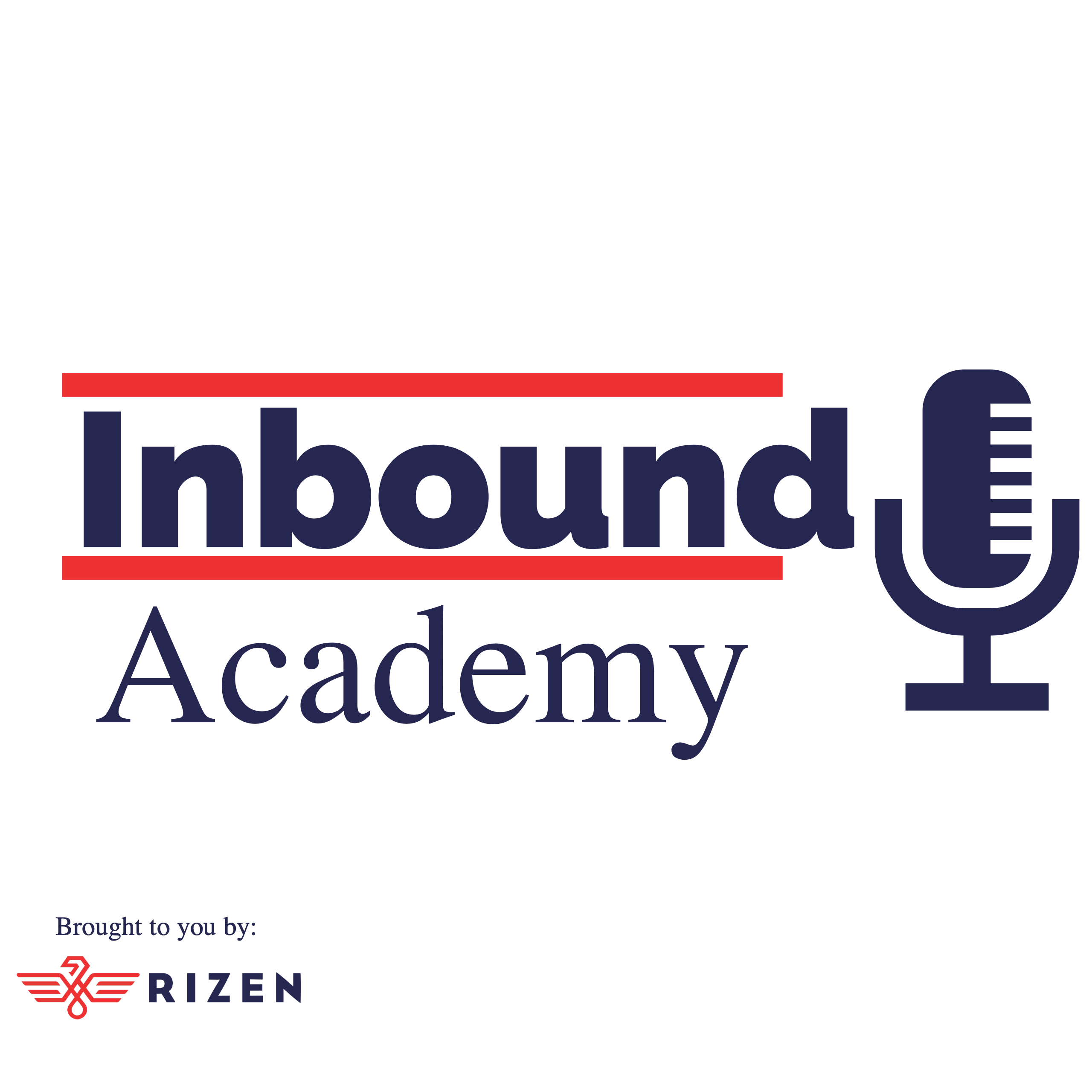Today on Inbound Academy we’re sharing tips on how to really connect with your customers, the lifeblood of your business. As Abraham Lincoln once said, “customers keep coming back if you keep them in your Union.” (true quote, don’t look it up). Coming up right now!
Jeff Lambert: And podcast number three is live. That's what we call a winning streak. Everybody, thank you for joining us today. I'm your host, Jeff Lambert. If you like the show, please take a minute and check out our past episodes. They're all meant to build on each other. And remember, they are always 10 minutes or less so you can fit them into your day wherever you have the time. Today we're going to be talking about customer relationships and how you can build ones that last. I have with me today customer relationship-extraordinaire Will Avila, the CIO at Rizen. Will, thanks for coming today.
Will Avila: Thanks for having me.
Jeff: Absolutely. So let's talk about customers today. How has the typical customer changed since...let's go back to the turn of the century?
Will: Wow...so this thing called the internet came about, and you have Google, that gives people access to information, more information than anybody ever had access to ever. You have social media, Facebook, Linkedin, Twitter. So you have a community of people now that you can access. People now, they have the power versus before when the salespeople had the power. So you can research anything; a company, a product, a service, an illness, and then you go. And when you reach out to people, you are prepared. Not that the information is always 100% correct, but you know you've you've shifted the power from the salesperson to the consumer. So that's probably the biggest thing I would say. The Internet.
Jeff: Yeah. There's no better feeling now than like shopping for a car at a dealership and they give you a number and you can just pop right on your phone and be like, "well, I just found the same car for $2,000 less than that."
Will: Right, right, exactly! You know, you can see the reviews of the car. You can see what other people are paying for it used. You can see what other users are saying about it; on forums, etc. So definitely.
Jeff: So what you're saying is customers don't necessarily want to be sold anymore?
Will: No, no. They want to be...they'd rather be educated. I mean, there is a selling aspect that's not going to go away. But they want to... fill whatever gaps they have in their knowledge because they've already done research. You want to you to help that fill that in, but they're going to make a decision. Ultimately there's no more...hard closes aren't effective anymore.
Jeff: And do you think people want a deeper connection with the brands that they from today?
Will: Yeah, absolutely.
Will: I mean, you see that with reviews on Facebook. Yelp reviews, Google reviews, you know, people want to see what other people are saying about a brand. You know, is the product good? Is a service good? Is a food good? Does the software work? You know, does this company to actually deliver? What are the typical complaints? So, absolutely. People are connecting with brands and are engaging with them on social media. They're responding to them on Twitter...angrily or happily so. So people absolutely are connecting with brands and it's very important for brands to listen to people.
Jeff: So really, ignoring customer feedback in today's economy...that is not a smart move for my business?
Will: Correct. Yeah. I mean, you want to...the power of the word of mouth is critical. Like I said, referrals are still the best way of generating a business. It has the lowest cost. Other people saying things about you, who have worked with you specifically, that type of word of mouth is important, and paying attention to the consumer is really critical. So paying attention to them, that's one of the most important aspects of building a relationship that lasts with the customer.
Jeff: Do you have any other keys that you could share with our listeners to build meaningful, long-lasting relationships?
Will: Yeah, absolutely. You know, I would say the key thing is to listen. And you know, 80% listening, 20% talking. You could do this through a variety of ways. You can send out surveys after they bought your product. You can have a pop-up during a checkout process. When they try to abandon a purchase, ask them why, you can survey people. You can even survey your personas and your target audience prior and understand what their challenges are, what their needs are. So listening is definitely an important; using open-ended questions like who, what, where and why is what I would put in. Those listeners, whether you use a hot jar or any of the Google forms, whatever tools you use. So open-ended questions usually give you a lot of insight. So yeah, listening is number one. Definitely.
Jeff: You know, when I think about it, I just filled out a survey yesterday. I'm a T-Mobile customer. They sent me something in my email because I feel like they're responsive to what I usually put back for feedback. I took the time to fill out the survey. So I think that, you know, if they had never sent me that they never would have had the ability to be able to get my feedback to improve their own services.
Will: Right. And you know, these surveys, I mean, most people fill them out. I don't want to say most, but a lot of people fill them out when they're upset. And you know, if you see pattern of a certain type of feedback, you can use that data and adjust your business to improve the overall customer experience. So listening is obviously an important key.
Jeff: Are there any other keys that you would recommend?
Will: I would say serve. So when you understand what the consumer's challenges are, what their goals are, provide the solutions for them. Don't assume that you know what the consumer wants. And you do that by building your personas, by understanding your buyer, not on your assumptions, but actually interviewing them and qualifying those results to see what you think versus what they feel their problems are and their challenges are.
Jeff: So I guess you could say it's about knowing who you're selling to?
Will: Absolutely. You have to know and there's no better way of knowing than by asking basic questions. So we have listening and we have serving.
Jeff: Do you have any other tips?
Will: Yeah, follow up. You know, people don't remember every interaction that they had with your company. So you can follow up with them with a banner ad for example. You can follow up with them with an email. You want to ensure that, that after the transaction that they were satisfied as well. So you can send a post-sale, post-service survey. And you know, and if it's an ongoing product, find out how they're doing over three months, six months, a year, or two years depending on what it is that you sell.
Jeff: Overall, how important is that followup interaction in terms of building that relationship with the customer?
Will: Yeah, I mean it's critical. It shows that you care. It reflects on you as a brand that you want to learn. So it's definitely very important.
Jeff: So just to recap for our listeners, we have three keys really to focus on when building those customer relationships, listening, serving, and following up. Well, thank you so much for taking the time to be able to discuss this with us today.
Will: Thanks for having me.
Jeff: Absolutely. And to our listeners at home, thank you for tuning into another episode. Remember every weekday you can expect a new topic for us to cover and they're always going to be less than 10 minutes, so they fit into your day. Remember, if you're looking for a partner to be able to help you with your marketing services, consider Rizen. They're goal-focused, and they're great about building relationships with your company. You can find out more about them at gorizen.com. You can also follow them on social media. They're available at Facebook, Instagram, and Twitter at Rizen_Inbound. That's one word, Rizen_inbound. Thanks for tuning in today, and we'll see you on the next one!
Want to stay in the know?
Join us, and get all the podcasts and more straight to your inbox.



.jpg?length=600&name=045%20-%20YouTube%20Cover%20Art%20(Video).jpg)


No Comments Yet
Let us know what you think